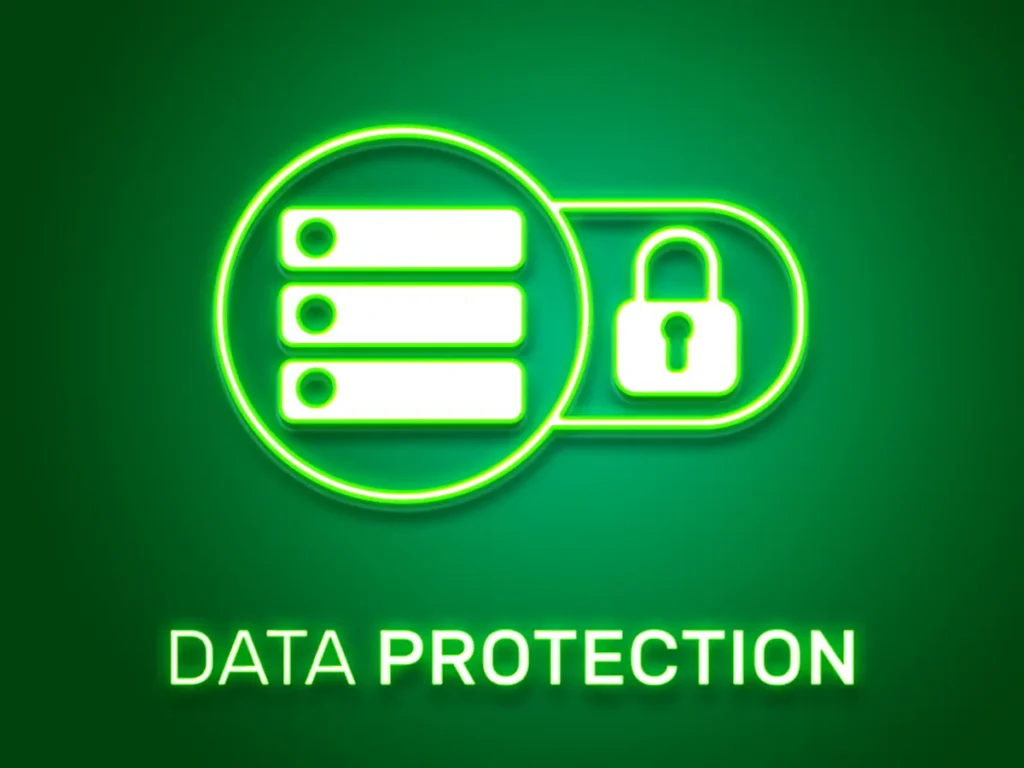Data Protection Law in Kenya: A Guide for Businesses and Consumers

Learn how the Data Protection Law in Kenya protects your personal information and what businesses must do to stay compliant.
How to Become a Data Protection Officer in 2025

Data privacy is definitely something organizations need to think about, especially when they’re dealing with a lot of confidential information. Learning about the role of a data protection officer and what it takes to get a job in this profession can help you decide if it matches your talents, training, and preferences. For me, the journey into data privacy started while working in a tech-related role where I often found myself intrigued by how sensitive data was managed and protected. As I dug deeper, I realized just how critical data protection is to the trust and success of any organization. That curiosity eventually led me to explore the role of a Data Protection Officer, pursue relevant training, and seriously consider building a career in this space. In this article, we will look into the role of a data protection officer, provide six steps for how to become a data protection officer, and discuss the skills, key responsibilities, job roles, and certifications required for this position. What is a Data Protection Officer? A data protection officer is someone who focuses on keeping a company’s crucial information safe while working within the company. To do this, a data protection officer can develop and implement effective data protection policies and technologies, as well as communicate the importance of data security to all personnel. They can also conduct research and comprehend all data compliance needs to ensure that an organization remains legally compliant. Some organizations are required to have a data protection officer, while others might decide to fill this role voluntarily to help prevent expensive data security breaches. Read more about the importance of data security. What Does a Data Protection Officers Do? Here are some of the tasks that a data protection officer may perform on a regular basis: Read more about How to Ensure Data Protection Compliance in Kenya How to Become a Data Protection Officer (DPO)? Becoming a data protection officer involves a mix of knowledge, experience, and qualifications. Here is a step-by-step guide that will help you get there: 1. Understand the Role and Legal Frameworks Before becoming a data protection officer, you have to first understand the data protection rules and regulations. Understanding these legal frameworks is crucial to the DPO’s capacity to complete their job successfully. 2. Education and Background Another approach to becoming a data protection officer is to use your educational background. It’s important to know that there is more than one way to become a data protection officer. Most of the people who work in this field have experience in law, IT, compliance, or business administration. Since data protection is related to both privacy law and cybersecurity, a lot of DPOs have skills in law, information security, or IT. Also, as a DPO, you need to have a deep knowledge of how the company works and how its data is managed. 3. Develop Core Skills To do well as a DPO, you’ll need to learn several types of skills, such as: 4. Certifications Needed to Become a DPO Having certifications can make you look much more trustworthy and improve your chances of getting a DPO job. The following certifications are widely recognized and can help you learn how to become a certified data protection officer: Learn more about ISO Training 5. Practical Experience As a data protection officer, you must have practical experience in IT, compliance, data security, or legal counsel jobs. It can be helpful to have prior experience in positions such as privacy consultant, compliance manager, or IT security officer. To become a good DPO, you should also work on data privacy projects and talk to upper management about compliance problems. This will help you learn the skills you need. 6. Stay Updated Data protection laws and best practices are always changing. So, as a good DPO, you need to stay informed by joining conferences, webinars and taking online courses. Joining professional associations like IAPP is a great way to keep up with the latest trends and updates. Key Responsibilities of a Data Protection Officer Here are the key responsibilities of a DPO: Job Roles and Opportunities for a DPO A DPO’s role is extensive and covers a wide range of sectors. Below is a summary of the typical job roles performed by DPOs: Data Protection Officer Skills Here are some skills you could utilize in a data protection officer career. Data Protection Officer Job Description Although each data protection officer’s job description will be unique to the company or organization. The following are some recent LinkedIn posts that provide samples of real-world duties: Data Protection Officer Education Requirements According to the cybersecurity guide, data protection officers often hold a BA or BS degree in computer science, information security, or a related field. It also states that a bachelor’s degree or comparable professional experience in privacy, compliance, information security, auditing, or a similar sector may be considered as an alternative. Generally speaking, an advanced degree is not necessary, though it can be depending on the role. Even if it’s not necessary, gaining an advanced degree has several advantages. It can give you practical experience, show that you’re capable of continuing your education, and give you an advantage over other job candidates. Professional Certifications For Data Protection Officer Depending on the role, certifications might be necessary. They are quite valuable for being an effective data protection officer. Among the most well-liked ones are: Read more about top data security certifications that can improve your career. Conclusion If you’re looking to embark on a career in data protection. Pursuing a path to becoming a data protection officer is a wise choice. With the right knowledge, certifications, and experience. You can take on a key role in ensuring the safety and privacy of sensitive information. You can get started by exploring training and certification options through Johan Consults. A trusted provider in data protection education and career development.
How to Ensure Data Protection Compliance in Kenya

Are you confident that your business is fully compliant with Kenya’s data protection regulations? In today’s digital world, protecting personal data isn’t just a legal requirement—it’s a responsibility that builds trust with your clients and stakeholders. With the enforcement of Kenya’s Data Protection Act, businesses must take proactive steps to ensure compliance or risk facing serious consequences. Take the WPP Scangroup, for example. In October 2024, the company was ordered to pay damages for mishandling personal data, proving that the Office of the Data Protection Commissioner (ODPC) is serious about enforcing compliance. If a well-established company can face penalties, no business is immune. So, how can you make sure your organization is on the right side of the law? In this guide, we’ll break down the essential steps to achieving and maintaining Data Protection Compliance in Kenya—helping you safeguard personal information, avoid legal trouble, and earn the trust of those you serve. Understanding Data Protection Regulations in Kenya Kenya’s commitment to protecting personal information is stated in the Data Protection Act of 2019. This Act is in line with Article 31(c) and (d) of the Kenyan Constitution, which ensures the right to privacy—a basic human right. Companies are required to get consent from individuals before they can collect, use, or share their personal data. This legislative law ensures that personal data is processed legally, fairly, and transparently, reflecting global norms such as the General Data Protection Regulation (GDPR). For more information about our comprehensive GDPR compliance services, please do not hesitate to contact us. Role of the Office of the Data Protection Commissioner (ODPC) The first Commissioner under Kenya’s Data Protection Act was appointed in November 2020. Let’s take a quick look at what the Commissioner is all about—their main responsibilities, duties, and powers. Here’s a list of them: Key Principles of Data Protection Compliance in Kenya To achieve Data Protection Compliance in Kenya, organizations should focus on the following principles: To learn more, you can also read about the Data Protection Principle. Step-by-Step Guide to Achieving Data Protection Compliance in Kenya Achieving compliance involves a series of strategic actions, here are the following steps to take: 1. Governance, Risk, and Compliance (GRC) Framework Building a strong GRC system that works with the data protection laws that are already in place in different countries. You should also check that company policies and practices comply with both international standards and local regulatory obligations. 2. Data Inventory and Mapping Make a detailed inventory of all the personal information your company gathers and handles, following any applicable data localization guidelines. 3. Legal Basis and Consent Management Identify the legal justification for processing personal data in accordance with Kenya’s data protection laws. Develop strong consent management procedures to guarantee compliance with legal processing and consent withdrawal standards. 4. Data Security and Breach Management Implement suitable technical and organizational safeguards to keep personal information safe from unauthorized access, alteration, disclosure, or destruction. As required by local legislation and GDPR standards, develop procedures for notifying and responding to data breaches. 5. Data Subject Rights and Privacy Policies People are aware of their rights under Kenyan legislation regarding their personal data, including the ability to access, correct, and erase it. Develop clear and transparent privacy rules that outline data processing operations and data subjects’ rights. 6. Awareness and Training Employees should get training on corporate policies, local legal needs, and data protection principles. Create a culture of data privacy awareness to reduce risks and assure continuing compliance. Consequences of Non-Compliance Non-compliance with the Data Protection Act can lead to severe penalties, including fines of up to KShs. 5,000,000 or, in the case of an undertaking, up to 1% of its annual turnover of the preceding financial year, whichever is lower. Additionally, individuals may face fines not exceeding KShs. 3,000,000 or imprisonment for up to ten years, or both. Conclusion Ensuring Data Protection Compliance in Kenya is a comprehensive process that requires a thorough understanding of legal requirements and the implementation of effective data management practices. By adhering to the principles outlined in the Data Protection Act and proactively addressing potential risks, organizations can protect personal data effectively, avoid legal repercussions, and build trust with their stakeholders. If you’re facing challenges with data protection compliance, reach out to us at Johan Consults. We’re here to guide you through the necessary procedures. Frequently Asked Questions on Data Protection Compliance in Kenya 1. Who needs to comply with the Data Protection Act in Kenya? Any individual or organization, regardless of location, that processes the personal data of persons residing in Kenya must comply with the Act. 2. What are the key obligations of data controllers and processors? The key obligations are to ensure data is processed lawfully, and collected for the right purposes. 3. Is registration with the Office of the Data Protection Commissioner (ODPC) mandatory? Yes, data controllers and processors are mandatory to register with the ODPC.
Data Protection for Small Businesses in Kenya

Nowadays, small businesses in Kenya are handling more customer data than ever before. Whether you run an online store, a consultancy, or a local service-based business, securing that information isn’t just optional—it’s a must. Without a solid data protection policy for small businesses, you risk exposing your business to cyber threats, data breaches, and even legal penalties. In this guide, we’ll break down the essentials of data protection for small businesses, showing you how to safeguard your business while staying compliant with Kenya’s data protection rules for small businesses. What is Data Protection for Small Businesses? Data protection refers to the strategies and measures a business implements to keep their customer, employee, and company data safe from unauthorized access, loss, or breaches. So, with Kenya’s Data Protection Act now in effect, all businesses, whether large or small, have to make sure they’re keeping data secure and respecting privacy If your business is gathering, handling, or keeping any personal information like names, phone numbers, email addresses, or financial details, it’s important to have a data protection policy in place to meet regulations. Read more about the importance of data security. Key Data Protection Rules for Small Businesses in Kenya To ensure compliance with Kenya’s data protection rules for small businesses, here are some key principles to follow: Read more about data leakage protection. How to Create a Data Protection Policy for Small Businesses A strong data protection policy for small businesses serves as a helpful guide for securely managing customer information. It helps set up clear steps to stop people from misusing data and makes sure that legal requirements are met. Steps for Creating a Data Protection Policy If you’re unsure where to start, contact us at Johan Consults to guide you through the process. Read more about Nigeria’s Data Protection Act Data Protection Policy Template for Small Business A data protection policy can be rather simple. To help you get started, here is a simple template for a data protection strategy for a small business: Best Practices for Data Protection in Small Businesses Now that you have a data protection policy in place, here are some best practices to keep your business secure: Read more about cybersecurity firm in Kenya Final Thoughts: Secure Your Business Today Protecting customer data isn’t just about compliance—it’s about building trust and credibility for your business. By following Kenya’s data protection rules for small businesses and implementing a strong data protection policy for small business, you can safeguard sensitive information while fostering customer confidence. If you need help setting up your policy, download our data protection policy template for small businesses or contact us at Johan Consult to ensure your business stays secure and compliant. Don’t wait until a data breach happens—take action today to protect your small business and your customers!
Data Loss Prevention (DLP): The Silent Killer of Your Business

The consequences of data loss have never been higher; data must be shielded at all costs. So, this blog provides more information on the prevention of data loss. What is Data Loss Prevention? Data loss prevention (DLP) is the process of detecting and preventing data breaches, exfiltration, and even misuse by using cybersecurity strategies, processes, and technologies. The root of this equation is data; it’s a common factor for all businesses and organisations worldwide. What’s it used for? A typical organisation (business or not) keeps client data—personal, sensitive, etc., for record keeping, transaction processing, marketing, and competitor analysis. Cybercriminals use this data for varying reasons, majorly money-driven. While organisations keep them for ease of business and eventually increased profitability, cybercriminals make money off data through financial frauds, identity thefts, etc. The landscape further worsens with each technological advancement. Now, thousands of authorised users access the company’s database through cloud and on-premises facilities. Therefore, there’s a need to implement strategies to prevent data loss. With DLP, organisations detect data threats faster than usual. How? It tracks data throughout the system and implements security policies on that data. Organisations typically use DLP to: Why is Data Loss Prevention Important? Data is never safe; it doesn’t matter if it’s in use or at rest, making data protection and security complicated. Despite the stress, data loss prevention is the best step. Why? The costs of data loss surpass the technicalities of its prevention. According to the cost of a data breach report by IBM, the average cost of a data breach reached USD 4.88 million, a 10% jump from the previous year. Protecting data, particularly personal identifiable information (PII), became more difficult because data may be used and stored in several formats in multiple locations across various departments. Therefore, there’s a need to monitor each data point and enforce the necessary policy for it. Given the vulnerable nature of data, an ideal data loss prevention system must be able to monitor data when Types and Causes of Data Loss Data loss is often defined as events of data breaches, data leakages, or data exfiltration. Though used interchangeably, these terms have distinct meanings. Data breach: A data breach is any incident that leads to unauthorised access to data. Under this, we have cyberattacks and other incidents that allow unauthorised access to sensitive information. Data leakage: Like the name leakage, data leakages include accidental exposure of sensitive information to the public. This can occur from procedural security errors from both electronic and online transfers. Data exfiltration: This is any theft where the attacker (hacker) successfully moves stolen data to a device under his control. Data exfiltration cannot occur without a breach or leakage, but not every breach/leakage leads to exfiltration. Since data loss has been defined and categorised, let’s see its causes There are 3 Common Causes of Data Loss Cyberattacks Malicious actors target data all the time—relentlessly. To help their cause, they employ several techniques such as phishing, malware, and ransomware. These are the prevalent types of cyberattacks Insider threats Authorised users, such as staff, third parties, stakeholders, providers, etc., might put data at risk through carelessness and malicious intent even. It’s as simple as not updating passwords or even carelessly revealing sensitive enterprise data, etc. while using public networks. Malicious or not, insider threats remain very costly considering IBM’s report. Smartphone or PC theft An unattended device attracts thieves. It doesn’t matter if the thief pawns off the device; the organisation suffers the cost of cutting the stolen device off and replacing it. On a serious note, such incidents grant malicious users direct access to confidential or sensitive data. Data Loss Prevention Policies One thing about DLP is the wide coverage, from data classification, access control, and encryption standards to technical controls. With data loss prevention policies, the standard is clear: employees know their duties regarding data protection and security. In addition, it allows for proper staff training on data security best practices such as threat identification, data handling, and incidence reporting. Also, rather than a generalised security approach, with DLP, data is classified, and implementing appropriate security protocols for each group becomes easier. For example, handling PII (personally identifiable information), such as credit card numbers, social security numbers, etc., is subject to certain data security regulations. Meanwhile, the company can choose to do whatever with its own intellectual property (IP). These types of data require different security procedures; hence, tailored DLP policies are necessary. The Types of DLP Solutions It’s important to understand the different facets of data loss prevention for better comprehension. There are 3 types of DLP: Network DLP Network DLP solutions monitor how data moves through—in and out—networks. With tools like artificial intelligence (AI) and machine learning, they flag anomalies that signal data loss in a network. Although network DLP solutions monitor data in motion, many check data in use or at rest too. Endpoint DLP Endpoint DLP tools monitor data use activity on laptops, mobile devices, servers, and other devices accessing the network. These solutions are directly installed on the devices and even go the extra mile to block unauthorised data transfers between devices. Cloud DLP Cloud security solutions focus on data stored in and accessed by cloud services. They scan, classify, monitor, and even encode data in cloud repositories. Particularly, these tools help implement access control policies on individual end users and any cloud services that might access company data. How DLP Works DLP is typically a 4-step procedure for many security teams. The steps are:
All You Should Know About Fintech Cybersecurity

Cybersecurity is the practice of protecting data, computers, servers, mobile devices, software, and all other hardware from malicious attacks. One thing is sure: the most valuable resource in today’s world is data, and it’s a justified fact. One look at the world, and we see an unfathomable evolution—digital transformation. Every industry has begun to embrace the digital space, and financial institutions are not left behind. While we welcome the collaboration between technology and the financial industry, there’s a need to stay on top of the challenges it brings. So, as an individual who finds mobile payments lifesaving or a fintech startup trying to prevent cyberthreats, this article is for you. Read on for the importance of cybersecurity in fintech, the challenges it faces, and the best practices to encourage it. Cybersecurity in Fintech: The Landscape Over the last few years, business as we know it changed, especially the financial industry. The fusion of finance and technology has changed everything. But the dangers increased just as much. When it comes to cybersecurity, the fintech industry can be described with one word, “sensitive,” and its synonyms. Why? To carry out financial transactions on behalf of clients, sensitive data like credit card details, account balances, and pins needs to be stored. Now, cybercriminals attack fintechs for these data—it’s that important. And the modus operandi of these malicious actors do not remain stagnant. They constantly come up with newer and better technology that outsmart whatever defence fintech companies use. All thanks to AI and self-learning software. So, what are Fintechs doing about it? According to Gartner, 75% of companies intend to adopt new solutions that combat the growing global cybersecurity issue caused by new technology challenges. Fintech companies now embrace new cyber solutions and establish partnerships to strengthen their systems against online attacks. Although the careless attitude of employees constitutes some of the chinks in cybersecurity in fintech, fintech employees are part of the most cyber-aware among other industries. To combat the loose-employee side, fintech companies now support cybersecurity with new and better ID solutions. So, let’s move to the fun part. Importance of cybersecurity in Fintech To start with, cybersecurity in fintech serves as a shield for invaluable financial data such as personal information, account details, and transaction details. The consequences of a data breach in the industry can be catastrophic, going beyond identity theft and financial fraud. Implementing cybersecurity is not just a luxury but a necessary practice. It’s important to keep the trust users place in these institutions. When a data breach occurs, fintechs face massive reputational damage, the likes of which they might never recover from. It’s a case of “once bitten, twice shy.” Victims of financial fraud will never trust the institution anymore. To prevent eventual shutdowns due to customer migration and legal consequences, implementing cybersecurity in fintech is crucial. In addition, there’s a need to note that each individual fintech company’s part of a larger network. So, a successful cyberattack in one company is detrimental to others in the industry. To prevent a chain reaction, cybersecurity is best established. The challenges to cybersecurity in fintech Here’s a list of things that make cybersecurity more than a walk in the park Data breaches A data breach occurs when an unauthorised person gains access to personal and sensitive data. This can trigger negative consequences due to the nature of the breached data. For instance, there’s credit card fraud, where cybercriminals clear the victim’s account. And identity theft, when malicious actors perpetrate evil with the victim’s identity. As a fintech company, you must ensure adequate cybersecurity to prevent such occurrences. If not, the consequences will be dire. Insider threat An isider threat is a security risk to data that comes from inside the organisation—the staff. While fintech employees are more aware of cybersecurity than other industries, they aren’t perfect. According to research by the think tank EndPoint Ecosystem, a little over 50% of finance workers believe security policies restrict the way they work, and 49% confess to finding a way to work around their security policies. This shows how much insecurity surrounds data in the fintech world. New technologies The emergence of sophisticated technologies heralds progress and spells doom at the same time. Yes, some technologies are welcome, like the blockchain. Blockchain technology provides a decentralised and immutable ledger that can improve the security and transparency of financial transactions. But other technologies like AI and IoT increase the vulnerability of cybersecurity in fintech to cyberthreats. For example, IoT devices serve as an entry point for cyberattacks, while AI-powered attacks easily find loopholes in the security system. With these, fintech companies best implement authentication and other access control methods to guard up. Compliance with regulations There’s a host of data protection regulations out there, and fintech companies are bound to a few of them. Some of the key data regulations include the General Data Protection Regulation (GDPR), the Payment Card Industry Data Security Standard (PCI DSS), and the Federal Information Security Modernisation Act (FISMA). Non-compliance with these data regulations results in harsh penalties—either monetary fines or outright shutdowns. Now, GDPR compliance does not come cheap; it has some particularly expensive requirements, such as hiring a Data Protection Officer and conducting DPIAs (Data Protection Impact Assessments). The cost of compliance poses a challenge to cybersecurity in fintech, especially startups. Third-party risks Third-party vendors help the fintech industry a lot, especially startups who need to outsource services. Yes, they offer lots of assistance, but they bring additional risks to cybersecurity in fintech. Some third parties may not ensure adequate security against cyberthreats, and any fintech doing business with them becomes vulnerable. The way forward is to make sure to outsource tasks to third parties with adequate cybersecurity measures in place. Best practices for cybersecurity in fintech Since we know the common cybersecurity threats in fintech, now’s the time to learn how best to prevent them and limit their impact. Here’s a list of the best cybersecurity practices for fintechs. Conduct regular audits Regular security audits will help you identify and


